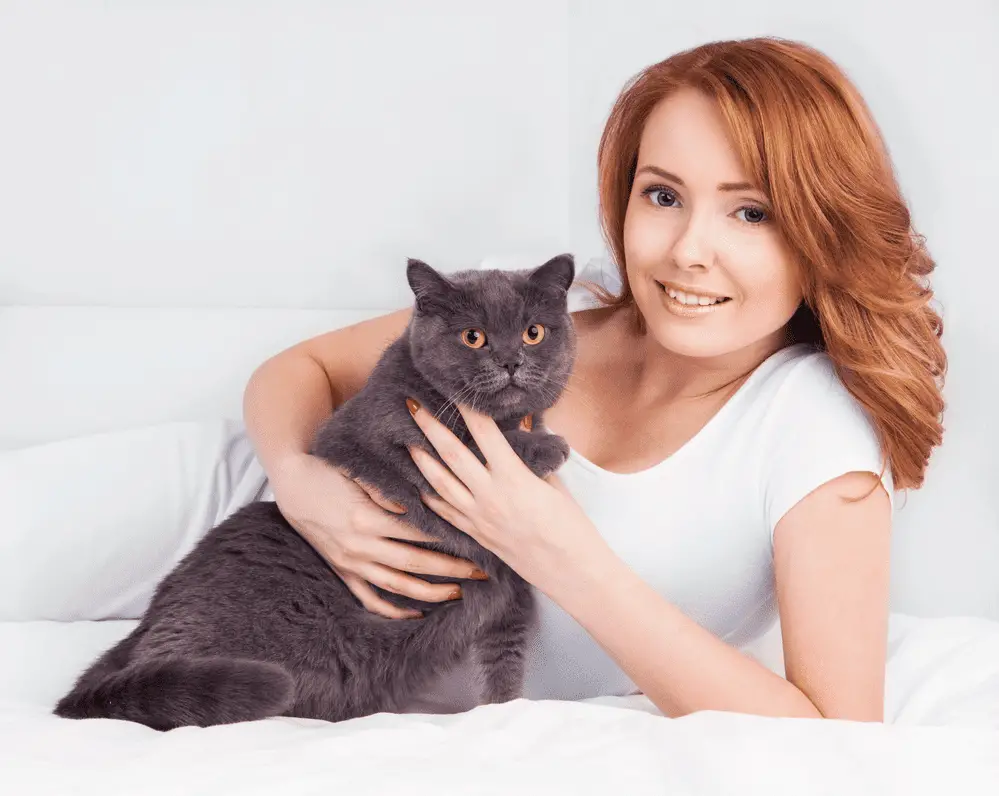One of the most popular pets in America is a house cat, and for good reason. Cats make good companions for people in various life situations, and their natural tendencies are so cute that cat videos fill the internet. However, anyone interested in providing a home for a cat will eventually ask this question: “How long do house cats live?”
*This post may contain affiliate links. As an Amazon Associate we earn from qualifying purchases.
The answer to this depends on several factors, and there are ways to help house cats live longer, such as with regular veterinary visits. Overall, cats tend to live longer when they are indoor pets, and they can provide companionship for many years.
What Is a Feral Cat?
Originally, every cat lived in the wild. But over human history, cats have become domesticated and bred for certain traits. Still, many cats run away or are abandoned, and so they return to a wild lifestyle. These cats are called feral. Many people might also call them stray cats. They appear the same as domestic cats, but living in the wild makes the less interactive with people and more likely to fight or have other wild characteristics. Feral cats often breed as well, which can cause an area to be full of stray cats.
Feral cats are exposed to many risks. Many die after being hit by cars. There are also pests like fleas and ticks that can make cats sick. Also, diseases and Feline Immunodeficiency Virus or Feline Leukemia Virus can easily be spread from infected cats during a fight. Because of these issues, feral cats have much shorter lifespans than house cats.
How Long Do House Cats Live?
A cat’s lifespan varies greatly depending on if it is an indoor or an outdoor cat. Indoor cats tend to live significantly longer.
Outdoor Cats
If a house cat lives outdoors, it is subject to the some of the same risks as a feral cat, though vigilance about vaccinations and flea and tick treatments can mitigate some of the dangers. Even so, many outdoor cats become infected with viruses after fighting with feral cats. Because of the risks from cars or dogs or other animals, outdoor cats have a much shorter life expectancy than indoor cats.
Still, there are advantages to going outdoors, such as the natural exercise from exploration of the neighborhood. But this does not outweigh the risks. How long do house cats live if they are outdoor cats? Their lifespan tends to range from 3 to 10 years, with an average of 5-6 years.
Indoor Cats
Living indoors protects cats. Also, indoor cats tend to have plentiful food, clean water, and are generally fixed or neutered. This, combined with decreased stress, can give indoor cats a life expectancy three times that of an outdoor cat. How long do house cats live if they are indoor cats? Their lifespan tends to be 12-18 years, though they can live 20 years and beyond.
Still, indoor cats have risks as well. They can become obese if they do not have sufficient exercise. Also, they may require more distractions or attention or they will become bored and sedentary: which is no better for a cat than a human! Still, good pet owners can mitigate these risks, and most indoor cats will live an average of 15-16 years.
How to Increase Life Expectancy and More
Minimizing Stress for the Cat
Some veterinarians emphasize making the cat’s home an emotionally comfortable place. Cats are not naturally confined in a single location and could require more social interaction when they are. One easy solution for this is not to leave cats alone. A second cat may provide both cats with companionship when owners are away.
Regular Veterinary Care
Regular checkups can detect health problems in cats at an early stage. Often, problems can be more easily treated early than late. Annual check-ups are recommended for cats under 10, while 6 month check-ups are suggested for cats over 10.
Proper Nutrition
Cats require proper nutrition. Certain nutrients such as antioxidants, vitamin E, and beta-carotene helped cats live longer. However, they also must avoid becoming obese. So, owners must carefully pick the proper food.
Breed and Fixing
Genetics play a factor in a cat’s life expectancy, with mixed breeds tending to live longer than purebred cats. Also, neutering or spaying cats tends to lengthen their lives. So, a fixed, indoor, mixed breed cat will tend to have the longest life. However, some purebreds also tend to have long lives, such as Siamese or Russian Blue cats.
Observation
One of the most important things owners can do for their cats is to observe them for any changes. Especially for older cats, changes could indicate a health problem. Close observation and veterinary check-ups for problems may be the best way to catch problems before they become serious. Some things to watch for include behavioral changes, personality changes, or changes in eating habits, weight, and the contents of the litter box.
Caring for an Older Cat
Older cats can require more care from owners due to age-related changes. They may no longer groom themselves as effectively, requiring more brushing or washing. Their vision and hearing may begin to fade, making them more accident prone. Dental problems can commonly deter them from eating and create weight loss.
The kidneys and other organs may have reduced function, which could lead to dehydration or other problems. Finally, degenerative joints can create pain, making it more difficult for them to move around and possibly leading to obesity.

